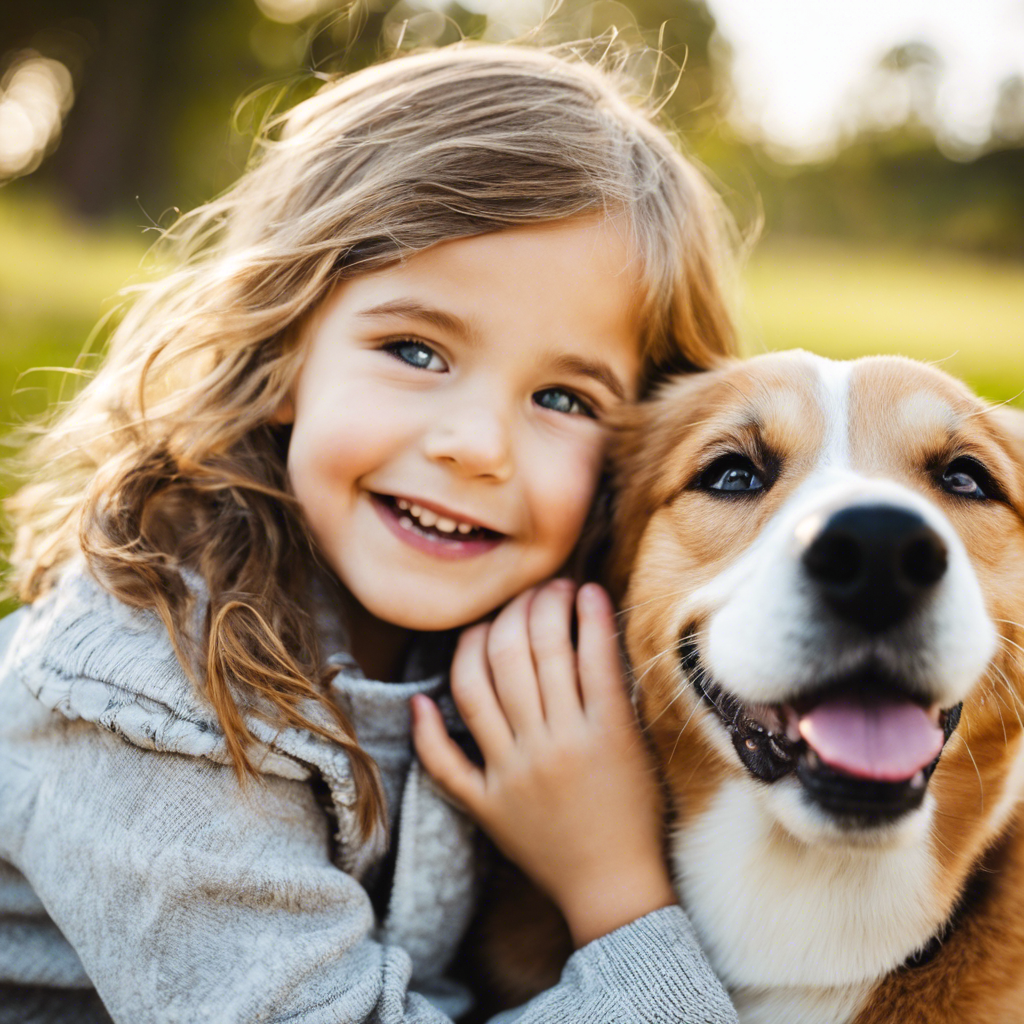Exploring the impact of pets on children’s emotional intelligence, this article discusses the positive effects and research findings.
Pets have long been cherished as loyal companions, offering unconditional love and joy to their owners. However, recent studies suggest that the benefits of pet ownership extend far beyond companionship, particularly when it comes to the emotional development of children. The presence of a pet in a child’s life can significantly influence their emotional intelligence, shaping their ability to understand and manage emotions effectively. This article delves into the fascinating world of child-pet relationships, exploring the various ways in which pets can contribute to a child’s emotional growth and well-being.
One of the most striking findings in recent research is the correlation between pet ownership and increased empathy in children. According to a study by the American Academy of Child and Adolescent Psychiatry, children who grow up with pets tend to display higher levels of empathy and understanding towards others. This development is crucial in building strong social skills and fostering positive relationships throughout life. For a comprehensive understanding of the benefits of pet ownership, the American Academy of Child and Adolescent Psychiatry offers a wealth of insights.
The Bond Between Children and Pets
The unique bond that forms between children and their pets is at the heart of this discussion. This bond fosters a sense of responsibility and nurtures empathy, which has a profound impact on a child’s emotional development. When children care for a pet, they learn to recognize and respond to the pet’s emotions, which in turn enhances their emotional intelligence.
Fostering Empathy and Emotional Awareness
Research highlights a fascinating connection between pet ownership and children’s emotional development. Numerous studies, including those by the American Psychological Association, have shown that children who grow up with pets are more likely to exhibit higher emotional intelligence. This is attributed to the daily interactions and emotional bonding that occur between children and their pets. For detailed insights into the role of pets in child development, the American Psychological Association provides a valuable resource.
Uncovering the Benefits of Pet Ownership
Having a pet can bring numerous advantages to a child’s life, some of which include:
- Learning about empathy and emotional intelligence through interactions with pets.
- Gaining a sense of responsibility, as pets require care and attention.
- Developing a deeper understanding of non-verbal communication.
Emotional Intelligence: A Skill for Life
Emotional intelligence is a critical skill that impacts various aspects of life. It enables individuals to recognize and manage their emotions, understand the emotions of others, and use this awareness to guide their thoughts and actions. In children, this skill is particularly important as it can significantly influence their social interactions, academic performance, and overall well-being. Emotional intelligence is a cornerstone of healthy development, and its nurturing should be a priority for parents and educators alike.
Social and Emotional Benefits
Children with higher emotional intelligence often display the following traits:
- Stronger self-awareness and the ability to manage their emotions.
- A deeper understanding of others’ emotions, leading to more empathetic behavior.
- Enhanced problem-solving skills, especially in emotionally charged situations.
Real-world Application
These skills are invaluable in various scenarios, such as:
- Building and maintaining healthy relationships.
- Managing stress and conflict effectively.
- Making well-informed decisions by considering emotional factors.
Q&A: Frequently Asked Questions
How does pet ownership contribute to emotional intelligence in children?
Children who have pets often develop a deeper understanding of emotions. They learn to recognize and respond to their pets’ emotional cues, which in turn helps them better understand their own emotions and those of others.
Can having a pet improve a child’s social skills?
Absolutely. Pets can serve as icebreakers in social situations, helping children feel more comfortable and confident when interacting with others. This increased social interaction can contribute to the development of better social skills.
Conclusion: Unlocking Emotional Intelligence
The role of pets in fostering emotional intelligence in children is both profound and multifaceted. Through the unique bond that children form with their pets, they learn valuable lessons about empathy, responsibility, and emotional awareness. These skills are integral to their social and emotional development, contributing to healthier relationships and overall well-being. As parents and educators, recognizing and encouraging these pet-child relationships can be a powerful tool in nurturing emotionally intelligent individuals. The impact of pets on children’s emotional growth is a testament to the remarkable potential of these special connections, offering insights that can shape the way we view and support child development.
## External Links:
1. [Emotional Intelligence in Children](https://www.apa.org/topics/children/emotional-intelligence) – American Psychological Association (APA)
2. [Pet-Friendly Homes Boost Children’s Social Skills](https://www.researchgate.net/publication/268946677_Pet-Friendly_Homes_Boost_Childrens_Social_Skills) – ResearchGate
3. [Children and Pets: Social Development and Friendship Formation](https://www.frontiersin.org/articles/10.3389/fpsyg.2020.600430/full) – Frontiers in Psychology
